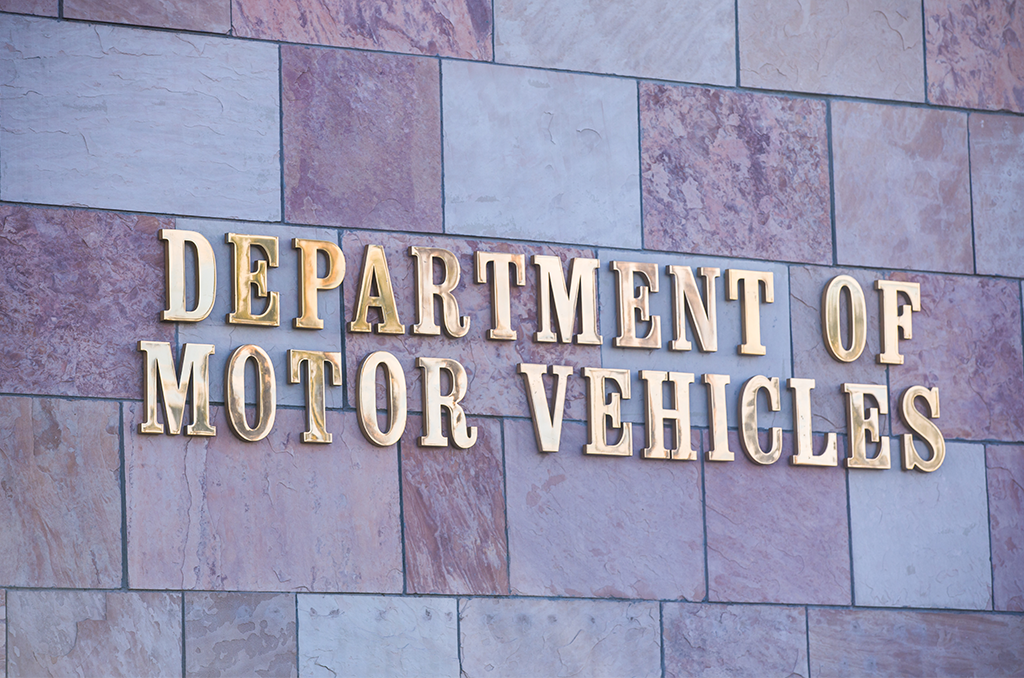DMV – Courtesy: Shutterstock – Image by RYO Alexandre
Florida has its sights set on launching digital driver’s licenses next month, an initiative the state has been working on for several months.
According to Florida’s politics, the ID’s are set to be released in mid-November by the Florida Department of Highway Safety and Motor Vehicles. They will allow drivers to carry and verify a digital version of their identification on their cellphones.
Florida Smart-ID, which has been studied since 2014, could be the end of long lines at the DMV since cards and licenses can be updated remotely, and maybe be the end of DMVs.
According to the agency’s website, “residents will be able to use a Florida Smart-ID Verifier app to share their Florida Smart-ID through a scannable QR or barcode. Once a user’s barcode is scanned, their information will be read and shared with the appropriate individual.” A limited group of participants is currently testing out this process.
Florida has published a “frequently asked questions” page about the app ahead of its launch. To put ease to some privacy concerns, it says there is no geolocation tagging to track your Smart-ID usage or device. The Smart-ID will not be accessible without the individual’s fingerprint or PIN.
Several tech companies, the American Automobile Association, and state motor vehicle departments in a growing number of states believe that mobile digital licenses will give people more privacy by allowing them to decide what personal information they choose to share.
The FLHSMV is working with Apple to make the system available on the Apple Wallet.
Currently, both Georgia and Arizona will be the first states to release the Apple version of the digital license. Iowa, Connecticut, Maryland, Kentucky, Utah, and Oklahoma will follow next year.
Regardless of launch, people will be required to keep their physical driver’s license with them, despite having digital access. FLHSMV states that it will remain state law to also carry their physical, traditional driver’s license.
Physical driver’s licenses remain necessary as “the fallback” in case of any internet outages or device malfunctions.
“We all have these instruments in our pockets,” said Chair Sen. Gayle Harrell, R-Stuart, holding her Smartphone. “They have become our way of life, our lifeline, truly, to the world.”
But with the conveniences of smartphones comes countless concerns about data privacy and equity. In a report released in May, the ACLU warned that while the act of digitalization is inevitable, it must be done with prudence.
“Digital is not always better – especially when systems are exclusively digital,” the report states, noting many people do not own smartphones.
The report calls on “state legislators to insist that the standards for digital driver’s licenses be refined until they are built around the most modern, decentralized, privacy-protective, and individual-empowering technology for IDs; that they make sure that digital identification remains meaningfully voluntary and optional; that police officers never get access to people’s phones during the identification process; and that businesses aren’t allowed to ask for people’s IDs when they don’t need to.”
Make sure you are staying up-to-date with the latest and most important Florida news with Florida Insider. Whether you are interested in business, education, government, history, sports, real estate, nature, weather, or travel: we have something for everyone. Follow along for the best stories in the Sunshine State.
Melissa’s career in writing started more than 20 years ago. Today, she lives in South Florida with her husband and two boys.

